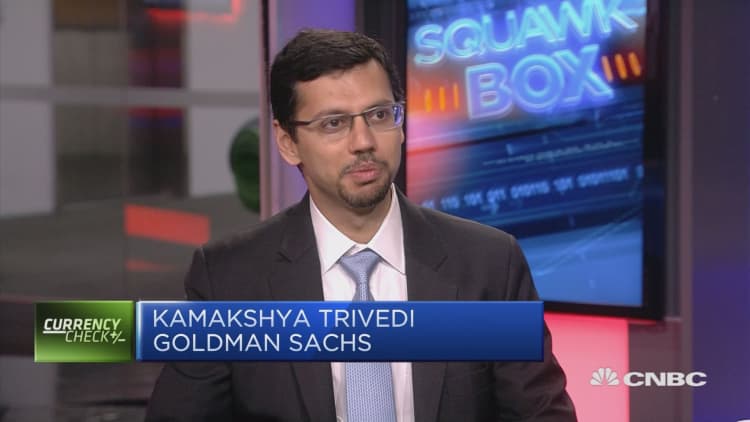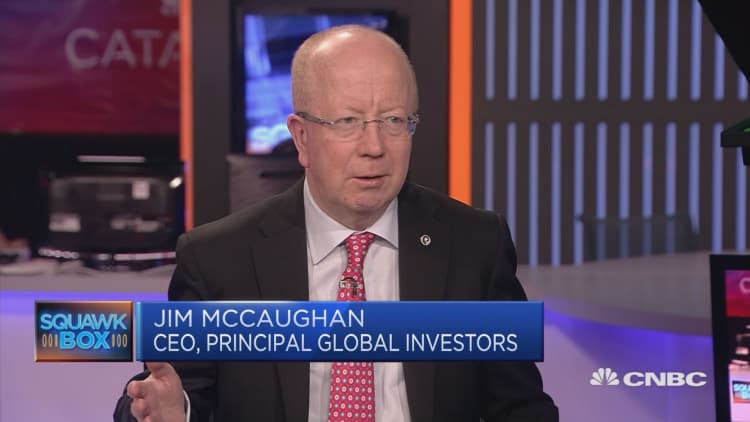
Turkey imposing capital controls could quickly exacerbate the exposure of other emerging market economies, an analyst at Goldman Sachs told CNBC Thursday.
Turkish officials are currently trying to contain the country's worst currency crisis since 2001, with the lira tumbling to a low of 7.24 against the dollar at the start of the week. The lira has since pared some of its losses, trading at around 5.7890 against the dollar on Thursday afternoon.
The lira has lost more than 40 percent of its value against the dollar this year, sparking fears of contagion and a sell-off in emerging markets — particularly if Turkish officials move to introduce capital controls in an effort to stem its latest currency crisis.
'Limited chance of success'
The dramatic fall has been fueled, in part, by President Tayyip Erdogan's relentless calls for lower interest rates at a time when domestic inflation continues to surge. An ongoing diplomatic dispute between Turkey and the U.S. has also intensified Ankara's economic woes.
"Full-blown capital controls that everybody is worried about I think have a pretty limited chance of success, partly because they have a big external funding requirement … So I don't think capital controls here are the solution," Kamakshya Trivedi, co-head of emerging markets and foreign exchange research at Goldman Sachs, told CNBC's "Squawk Box Europe" on Thursday.
Instead, Trivedi suggested the Turkish government should prioritize further monetary policy tightening as well as delivering a comprehensive statement on fiscal policy to try to restore the country's economic credibility.
Turkish Finance Minister Berat Albayrak, Erdogan's son-in-law, is scheduled to give a conference call to more than 1,000 investors on Thursday which many hope will calm market jitters.
Contagion risk
"I think (Kamakshya) is right that capital controls are not the answer, the risk is that the administration thinks it is the answer," Jim McCaughan, chief executive at London-based Principal Global Investors, told CNBC on Thursday.
"The risk is that if they go down that route, that is something that effects the broader emerging markets asset class from a reputational standpoint. So I think those are the channels of contagion one needs to worry about rather than I think the fundamental ones — which are small," Goldman Sachs' Trivedi added.

The week's turmoil has jolted assets globally, pulling down equities across developed market indexes and hitting the MSCI emerging markets index particularly hard.
— CNBC's Natasha Turak contributed to this report.



